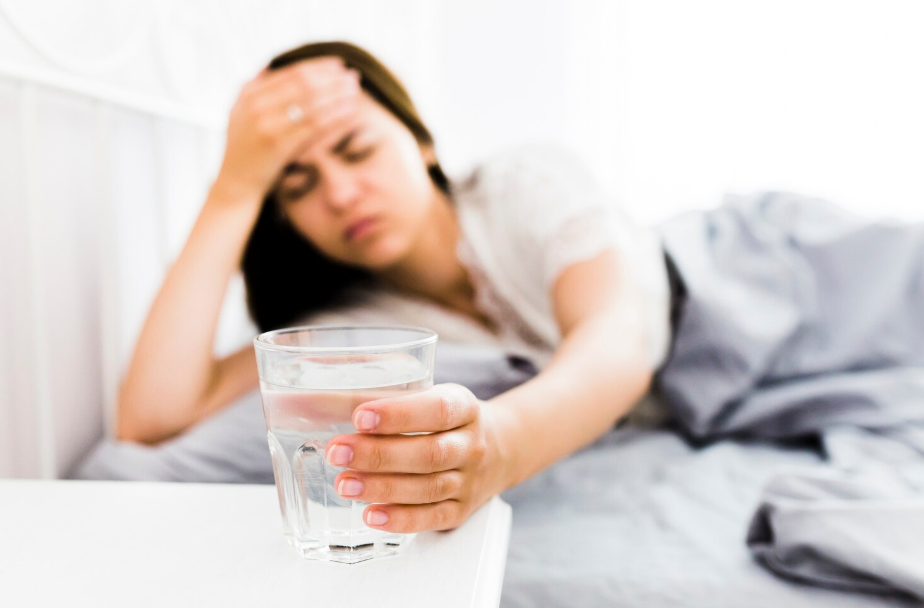
Understanding Hangover Shakes
Hangover shakes, also known as alcohol tremors or alcohol shakes, refer to the involuntary trembling or shivering of the body that can occur after excessive alcohol consumption. These shakes typically manifest as shaky hands, quivering limbs, or a general feeling of tremors throughout the body. The severity and duration of hangover shakes can vary from person to person.
What are Hangover Shakes?
Hangover shakes are a common symptom experienced after heavy alcohol consumption. They often accompany other hangover symptoms such as headaches, nausea, fatigue, sensitivity to light and sound, and muscle aches. The shaking or trembling can be an expression of alcohol withdrawal as the body metabolizes the remaining alcohol in the system.
Causes of Hangover Shakes
The exact cause of hangover shakes is not fully understood, but several factors contribute to their occurrence. One significant factor is dehydration, as alcohol is a diuretic that increases urine production and leads to excessive fluid loss. This fluid loss can result in dehydration, causing the body to lose essential electrolytes and minerals that affect the normal functioning of muscles and nerves, potentially leading to shaky movements [2].
Another cause of hangover shakes is an electrolyte imbalance. Excessive alcohol consumption can disrupt the balance of electrolytes in the body, including potassium, sodium, and magnesium. These electrolytes play a vital role in regulating muscle and nerve function. Disturbances in electrolyte levels can contribute to the development of hangover shakes [3].
In some cases, hangover shakes can also be a result of alcohol withdrawal. When the body becomes dependent on alcohol, sudden cessation or a significant reduction in alcohol consumption can lead to withdrawal symptoms, including tremors. These shakes are typically more severe and can be a sign of alcohol addiction or alcohol use disorder [4].
Understanding the causes of hangover shakes is essential for recognizing and managing this common alcohol-related symptom. By addressing dehydration, electrolyte imbalances, and alcohol withdrawal symptoms, individuals can take steps to alleviate or prevent hangover shakes.
Effects of Alcohol on Hangover Shakes
When it comes to hangover shakes, the effects of alcohol on the body play a significant role. There are two primary factors that contribute to the development of hangover shakes: dehydration and electrolyte imbalance, as well as alcohol withdrawal.
Dehydration and Electrolyte Imbalance
Dehydration is a significant factor that can contribute to the development of hangover shakes. Alcohol acts as a diuretic, increasing urine production and leading to excessive fluid loss. This fluid loss can result in dehydration, causing the body to lose essential electrolytes and minerals. When the body lacks proper hydration and electrolyte balance, it can affect the normal functioning of muscles and nerves, potentially leading to shaky movements [3].
Electrolytes, such as potassium, sodium, and magnesium, are crucial for regulating muscle and nerve function. Excessive alcohol consumption can disrupt the balance of electrolytes in the body, leading to an electrolyte imbalance. This disturbance in electrolyte levels can contribute to the development of hangover shakes. It's important to replenish lost fluids and electrolytes by drinking water and consuming foods rich in electrolytes, such as bananas, spinach, and coconut water.
Alcohol Withdrawal and Shakes
Hangover shakes can also be a result of alcohol withdrawal. When the body becomes dependent on alcohol, sudden cessation or a significant reduction in alcohol consumption can lead to withdrawal symptoms, including tremors. These shakes are typically more severe and can be a sign of alcohol addiction or alcohol use disorder.
The exact cause of hangover shakes is not fully understood, but it is believed to be related to alcohol's effects on the central nervous system, dehydration, changes in glucose and electrolyte levels, and the body's inflammatory response to alcohol. It's important to seek medical attention if the hangover shakes are severe, persistent, or accompanied by other concerning symptoms.
Understanding the effects of alcohol on the body can help in managing and preventing hangover shakes. Moderating alcohol consumption, staying hydrated, and ensuring a balanced diet with electrolyte-rich foods are essential steps to minimize the occurrence of hangover shakes. If alcohol addiction is a concern, seeking professional help is recommended to address the underlying issue.
Recognizing and Managing Hangover Shakes
Experiencing hangover shakes can be an unpleasant and sometimes alarming symptom of excessive alcohol consumption. While these shakes are generally temporary and subside on their own, it's important to recognize when medical attention may be necessary and to implement self-care strategies to manage the discomfort.
When to Seek Medical Attention
In most cases, hangover shakes will resolve on their own as the body processes the alcohol and returns to its normal state. However, there are certain situations where seeking medical attention is necessary. Signs of severe shakes that may require medical attention include extreme fatigue, severe headaches, rapid heart rate, or confusion. These symptoms could be indicative of more serious underlying conditions and should not be ignored.
Hangover shakes can also be a result of alcohol withdrawal. When the body becomes dependent on alcohol, sudden cessation or a significant reduction in alcohol consumption can lead to withdrawal symptoms, including tremors. These shakes are typically more severe and can be a sign of alcohol addiction or alcohol use disorder. In severe cases, hangover shakes and other symptoms may indicate alcohol poisoning, necessitating immediate medical attention. It is important to know the signs of alcohol poisoning and seek help if needed [4].
If you experience severe or prolonged hangover shakes, it is crucial to consult a healthcare professional. They can assess your symptoms, provide appropriate medical advice, and offer necessary treatment options.
Self-Care Strategies for Hangover Shakes
While waiting for the hangover shakes to subside, there are self-care strategies you can implement to manage the discomfort:
- Rest and Hydrate: Fatigue and dehydration often accompany hangover shakes. Get plenty of rest and drink fluids to rehydrate your body. Opt for water, electrolyte-rich drinks, or herbal teas to replenish lost fluids and essential minerals.
- Eat Nutritious Foods: Consuming a balanced meal can help stabilize blood sugar levels and provide essential nutrients to support your body's recovery. Include foods rich in vitamins, minerals, and antioxidants to aid in the healing process.
- Avoid Stimulants: While it may be tempting to reach for caffeine to counteract fatigue, it can exacerbate the shakes and worsen dehydration. Limit your consumption of caffeinated beverages and opt for non-caffeinated options instead.
- Apply Cold Compresses: If the shakes are causing muscle tension or discomfort, applying cold compresses to the affected areas can help alleviate symptoms. The cold temperature can provide temporary relief and reduce inflammation.
- Practice Relaxation Techniques: Engaging in relaxation techniques such as deep breathing exercises, meditation, or gentle stretching can help calm your body and mind. These techniques may reduce anxiety and promote a sense of well-being.
Remember, these self-care strategies are intended to alleviate symptoms and promote comfort while your body recovers. If the hangover shakes persist or worsen, seek medical advice for proper evaluation and treatment.
By recognizing when medical attention is necessary and implementing self-care strategies, you can effectively manage hangover shakes and support your body's recovery process. It's important to prioritize your health and well-being, and to make informed decisions regarding alcohol consumption to reduce the likelihood of experiencing hangover shakes in the future.
Prevention of Hangover Shakes
Prevention is key when it comes to avoiding hangover shakes. By taking proactive measures, individuals can reduce the likelihood and severity of these unpleasant symptoms. Here are two essential strategies for preventing hangover shakes:
Moderating Alcohol Consumption
One of the most effective ways to prevent hangover shakes is to moderate alcohol consumption. By drinking alcohol in moderation, individuals can minimize the risk of experiencing the shaking associated with hangovers. It is important to know one's limits and avoid excessive drinking.
The body's ability to process alcohol varies from person to person. Factors such as body weight, metabolism, and tolerance levels can influence how alcohol affects an individual. Drinking in moderation and pacing oneself can help prevent excessive alcohol consumption and reduce the likelihood of experiencing hangover shakes.
Hydration and Nutritional Considerations
Staying hydrated is crucial in preventing hangover shakes. Alcohol is a diuretic, meaning it increases urine production and can lead to dehydration. Drinking alcohol can cause the body to lose fluids and electrolytes, which can contribute to hangover symptoms, including shaking.
To stay hydrated, individuals should make a conscious effort to drink water throughout the night while consuming alcohol. Alternating alcoholic beverages with non-alcoholic options, such as water or electrolyte-rich drinks, can help maintain hydration levels.
Additionally, considering nutritional factors can play a role in preventing hangover shakes. It is advisable to eat a balanced meal before drinking alcohol. Consuming food before drinking can slow down the absorption of alcohol into the bloodstream, potentially reducing the severity of hangover symptoms.
By moderating alcohol consumption and prioritizing hydration and nutrition, individuals can take proactive steps to prevent hangover shakes. It's important to remember that everyone's tolerance and reaction to alcohol vary, so it is essential to listen to one's body and make responsible choices when consuming alcoholic beverages.
References
[1]: https://www.health.harvard.edu/staying-healthy/7-steps-to-cure-your-hangover
[2]: https://www.medicalnewstoday.com/articles/hangover-shakes
[3]: https://www.townsendla.com/blog/hangover-shakes
[4]: https://rehabclinicsgroup.com/hangover-shakes-causes-and-treatments/
[5]: https://www.healthline.com/health/alcohol/hangover-shakes



